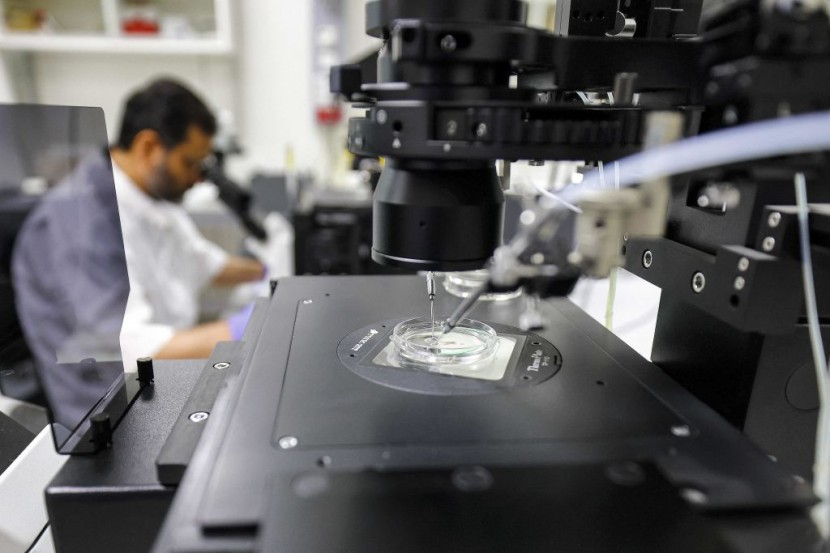The FDA is contemplating approving a cutting-edge therapy that has the potential to revolutionize the treatment of sickle cell disease.
This therapy, called exa-cel, utilizes CRISPR gene-editing technology, a remarkable scientific advancement developed through a collaboration between Vertex Pharmaceuticals and CRISPR Therapeutics, as per The Hill.
FDA Considers Sickle Cell Gene Therapy

Although no official decision has been made, the positive discussion and feedback from the FDA's Cellular, Tissue, and Gene Therapies Advisory Committee suggest a favorable outcome may be imminent.
Sickle cell disease is a debilitating and often deadly condition that has left many individuals, especially in the African-American community, in a constant battle with excruciating pain, organ damage, and a significantly reduced life expectancy.
The disease is characterized by misshapen red blood cells that can clog blood vessels, leading to severe pain, progressive organ damage, and organ failure. Until now, the primary treatment option for severe sickle cell disease has been stem cell or bone marrow transplants.
Unfortunately, finding suitable donors and ensuring the success of these transplants have posed significant challenges. Enter exa-cel, a potential game-changer in the world of medicine. Developed by Boston-based Vertex Pharmaceuticals and Swiss company CRISPR Therapeutics, this innovative therapy offers hope for individuals who have sickle cell disease.
Exa-cel harnesses the power of CRISPR technology to modify a patient's stem cells, eliminating the genetic abnormalities responsible for sickle cell disease. These altered stem cells are then infused back into the patient in a one-time procedure.
Studies conducted by the companies behind Excel have shown remarkable results. The treatment has been deemed safe and has demonstrated a "highly positive benefit-risk" profile for patients with severe sickle cell disease.
In a group of 40 patients tested, an astonishing 39 did not experience vaso-occlusive crises, which cause intense pain and are a frequent reason for emergency room visits and hospitalizations. Before the treatment, patients typically endured around four of these painful crises annually, resulting in two weeks of hospitalization each time, according to CNN.
FDA Seeks Guidance on Historic CRISPR Treatment Approval
The FDA recognizes that this potential treatment represents a significant departure from conventional therapies and has sought advice from an independent panel of experts. Notably, this would be the first time the FDA approved a treatment that utilizes CRISPR technology.
While the novelty of the technology brings uncertainty, the panel members and experts emphasized that CRISPR technology has been in development for over three decades. This long history of research and development has enabled scientists to acquire valuable knowledge about the safe use of CRISPR technology.
One primary concern when using genetic editing technology like CRISPR is the potential for "off-target effects," wherein unintended changes to a patient's DNA could occur, potentially causing harm. To address this concern, the FDA panel and experts considered the depth of analysis conducted by the companies.
They agreed that the data submitted for FDA approval appeared reasonable, and they highlighted the importance of monitoring patients for an extended period, specifically for 15 years, to detect any potential long-term issues.
Dr. Daniel Bauer, a principal investigator and staff physician, assured the panel that the risk of off-target effects is relatively small, given that much of the human genome is non-coding, meaning it does not provide instructions to the cells.
Thus, even if an editing error occurred, it might not have functional consequences or harm the patient.He emphasized the need for humility and openness to learning from the patients participating in these groundbreaking therapies.
While some uncertainties remain, the potential benefits of exa-cel and CRISPR technology in treating sickle cell disease are undeniable. This treatment offers a glimmer of hope to those who have endured a lifetime of suffering and a significantly reduced life expectancy.
Committee members and experts largely agreed that the benefits far outweigh the risks, and they emphasized the importance of moving forward with this innovative therapy.
The FDA is expected to decide on the approval of exa-cel by December 8. If approved, it will mark a historic milestone as the first FDA-approved treatment that utilizes CRISPR technology, opening the door to a new era of genetic therapies and potentially transforming the lives of individuals with sickle cell disease. Hope is on the horizon, and for those who have long suffered, this could be the breakthrough they've been waiting for, USA Today reported.








